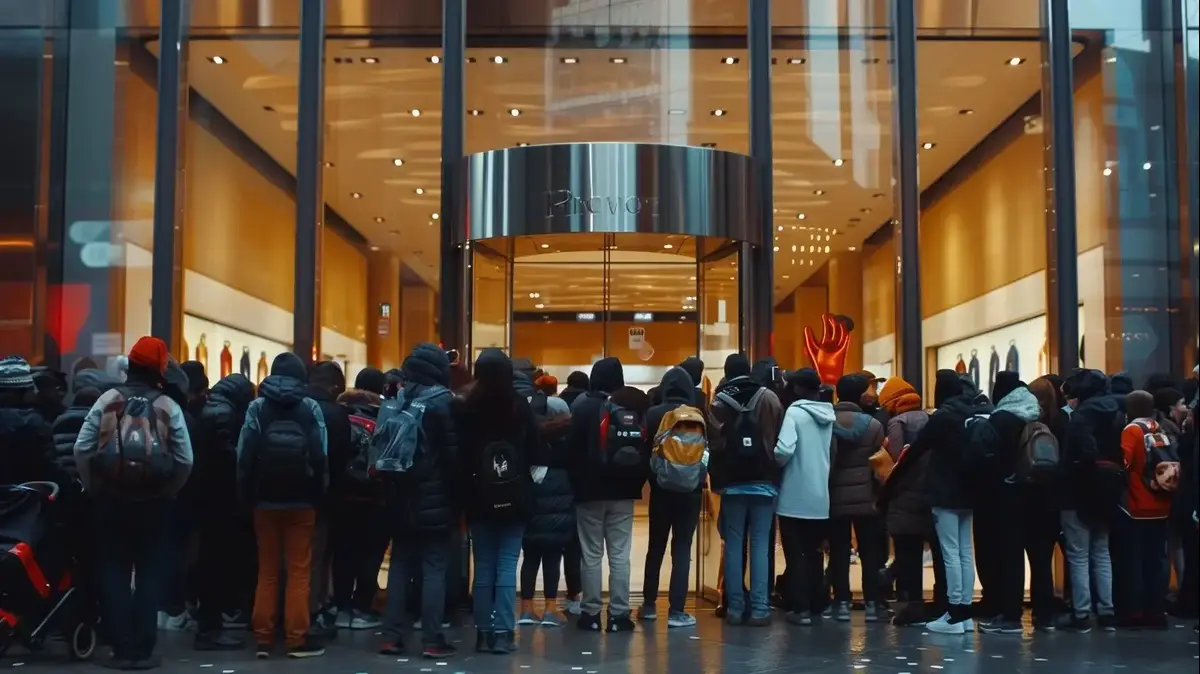Who would have believed that bags and poppers could look so good? (Photo: Samsung Israel)
Time to wake up, the ball is crumbling
After hundreds of years of coma it seems that the world is starting to wake up.
The dystopian estimates predicting the loss of millions of animals in the coming decades, massive deforestation and an increase in human mortality have given their signals.
Leaders all over the world in the establishment and underground did not remain indifferent and issued unequivocal calls to reduce environmental damage, while taking active actions to raise public awareness, speed up legislation and increase sanctions against polluters.
But all of these, despite their great power, cannot meet this task alone in an era where brands occupy such a significant part of our lives.
The Edelman research company examined the perceptions of Americans towards brands and found that 75% of consumers believe that brands have the responsibility to take positions and actions to promote burning issues that are at the center of public discourse.
Indeed, it is possible to see the commitment of the giant brands for the fight against the climate crisis, starting from fashion companies such as Adidas and H&M, through retailers such as Unilever and even furniture companies such as IKEA.
From fishing nets to components in the mobile device
Adopting an environmental ideology does not amount to mere statements and requires the super brands, who have been accustomed for years to a work pattern of profit maximization, to make changes to the product, the production line and the supply chain.
These actions seem simple on the surface, but they require the organization to direct technological, financial and human resources and sometimes even take many years to implement.
Therefore, one of the main questions that brands should ask themselves when they plan environmental moves is what are the most significant actions they can take for the environment, in a way that will benefit the brand's image.
In Samsung's case, the answer was to collect fishing nets abandoned at sea.
According to the World Wildlife Fund (WWF), abandoned fishing nets make up about a tenth of all waste in the oceans, with over a million tons accumulating on the seabed every year and causing great harm to the animals, who find their death in them.
To this end, Samsung launched the Galaxy for the Planet program, in which the company's employees go on a journey to collect fishing nets from the heart of the sea.
It then turns them into essential ingredients and integrates them into its mobile devices.
Thus, in fact, it implements two environmental principles: both waste collection, and recycling and reuse.
Other environmental moves by Samsung include the production of ecological boxes from 100% recycled paper and chargers that incorporate consumer waste.
Maintain a connection to the consumer
The actions that the giant brands will carry out, however many they may be, will not be effective if they are not properly communicated to the consumer audience, and this is where women and marketing people come into the picture.
Although the message to protect the environment is important, our activities, the big brands, are often complex for the average customer.
So how can the gap be bridged in a way that positions the brand as responsible and also strengthens the consumer's sense of commitment to the environment?
More in Walla!
A smart test reveals the risk of stroke - now on special sale
Served on behalf of Shachel
Authenticity is the name of the game
The preoccupation with social agendas in general and the quality of the environment in particular can sometimes be perceived as cynical, distant and self-interested when it comes from a commercial company, which on the face of it is far from these worlds.
Therefore, in campaigns of this type it is more important than ever to speak to the audience at eye level.
One of the most effective ways for Samsung was to use micro-influencers, understanding that in a market saturated with brands, we must produce unique and differentiated content for existing and potential consumers, which will allow us to convey our messages in the most attractive way possible.
The company recruited to its ranks content creators who advocate for sustainability and the environment and are active on the issue, and together with them created original content that tells the story of Samsung and its efforts for the sake of the environment.
What was Samsung looking for at Fashion Week?
Last March, Samsung Israel took part in a unique and original activity during Fashion Week. As part of it, the best designers in Israel joined forces to save the ocean, designing spectacular clothing details from recycled fishing nets and other nautical elements.
The campaign's micro-influencers team walked the runway.
And the result?
An unprecedented viral move that was widely reviewed, calls for more collaborations, and hundreds of Samsung tags on the networks.
Layered dress from recycled fishing net. (Photo: Samsung Israel)
In conclusion
With great power comes great responsibility.
Large and well-known corporations must direct their power to make the world a better, healthier and more pleasant place.
Marketing people are tasked with communicating this to the public in the best and broadest way possible.
Marketing and digital
Video and gallery
Tags
Earth Day
Samsung
environmental quality
recycling
Fashion



/cloudfront-eu-central-1.images.arcpublishing.com/prisa/AFAFFD5GDNCDHKO2MHBSFAZ6XY.jpg)





